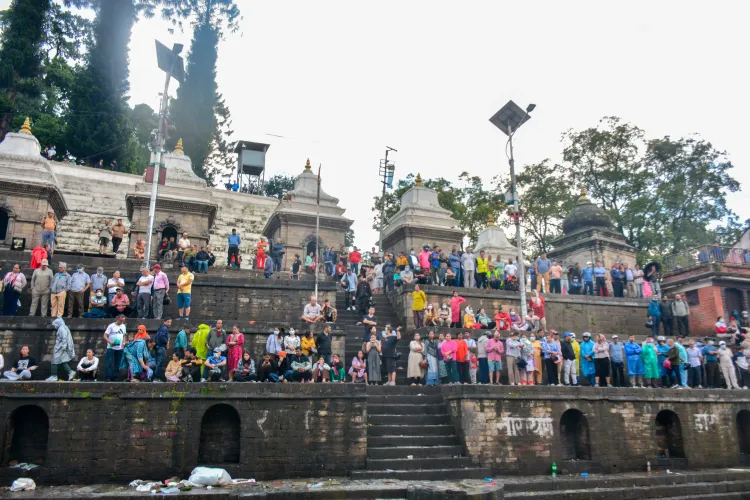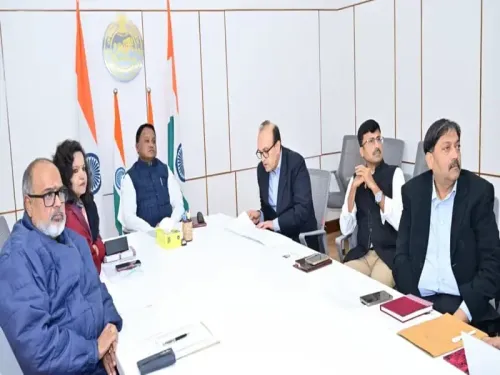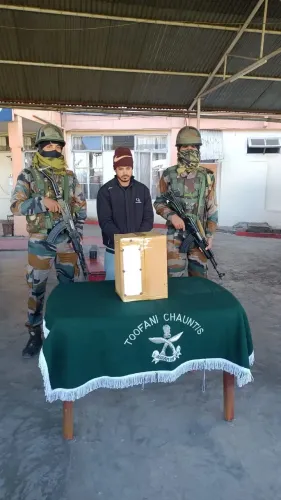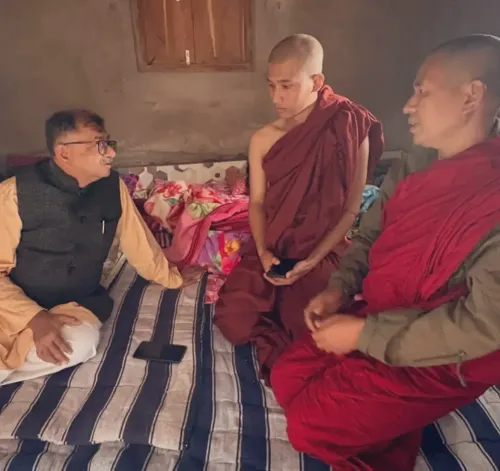Is India Monitoring Nepal's Path to Stability Amidst Challenges?

Synopsis
Key Takeaways
- Nepal is striving for peace and democratic governance amidst challenges.
- The Gen Z movement is facing internal divisions that could impact its effectiveness.
- Political unrest has led to a significant decline in the Nepal Stock Exchange.
- Key youth leaders are struggling with their roles and responsibilities.
- External actors pose a risk of exploiting the situation for their own interests.
New Delhi, Sep 18 (NationPress) As Nepal navigates its journey towards peace and democracy, tensions have arisen within the Gen Z movement, prompting India to keep a vigilant eye on the developments in the region.
The Nepal Stock Exchange faced a significant decline on Thursday, plummeting by 160.33 points. Trading was suspended for the day after the index fell by 6 percent, ending at 2,511.91 points.
This abrupt drop underscores increasing uncertainty among investors, many of whom are reacting to the political turmoil and its potential ramifications for the economy, as reported by the Kathmandu Post.
The young demonstrators who were responsible for the government's downfall are not united; they are fragmented among various leaders, platforms, and tactical ambitions.
The unrest began earlier this week when a group led by Sudan Gurung gathered outside the official residence of interim Prime Minister Sushila Karki in Kathmandu.
They were protesting the appointment of Om Prakash Aryal as the Home and Law Minister in the interim cabinet.
The protesters asserted that they were the ones who elevated Karki to the prime ministership, warning that they could just as easily remove her.
Some of the demonstrators had previously expressed their dissatisfaction with the choice of a septuagenarian, advocating for a younger leader.
Kulman Ghising, a 54-year-old engineer currently in the cabinet overseeing three portfolios, emerged as a potential candidate for Prime Minister. He has played a crucial role in addressing Nepal's power issues.
Interestingly, Aryal is believed to have close associations with Kathmandu Mayor Balen Shah, who is accused of entering the cabinet through “self-nomination.” Some participants in the Gen Z movement view this as a betrayal of their democratic principles.
Shah, 35 -- an engineer-turned-rapper-turned-politician -- achieved victory as an independent candidate in the mayoral election and has garnered significant support among the youth of Nepal.
He was a key figure in the Gen Z movement, initially considered as a candidate to lead an interim government. However, he declined, publicly supporting Karki.
Gurung, a prominent figure in the uprising, is the founder of the youth-led organization, Hami Nepal, which is known for its social work, especially following the devastating 2015 earthquake.
Previously an event organizer and DJ, Gurung's life transformed after the earthquake in Nepal. He is recognized for his determination and emotional responses. A video recently surfaced showing one of Gurung's supporters attacking a journalist during a press event on September 14 in Kathmandu.
The video captured the chaos that ensued, with journalists retaliating against the assailant.
Given the current climate, security analysts are concerned about potential conflicts among youth leaders. The situation has attracted the attention of external actors, raising fears of unrest and a resurgence of arms smuggling across the porous Indo-Nepal border.
Foreign powers could exploit the instability, misleading the Gen Z movement to form a parallel authority, leading to prolonged unrest, as has been observed in neighboring countries.
Experts warn that similar scenarios have previously been reported from other regional nations.










